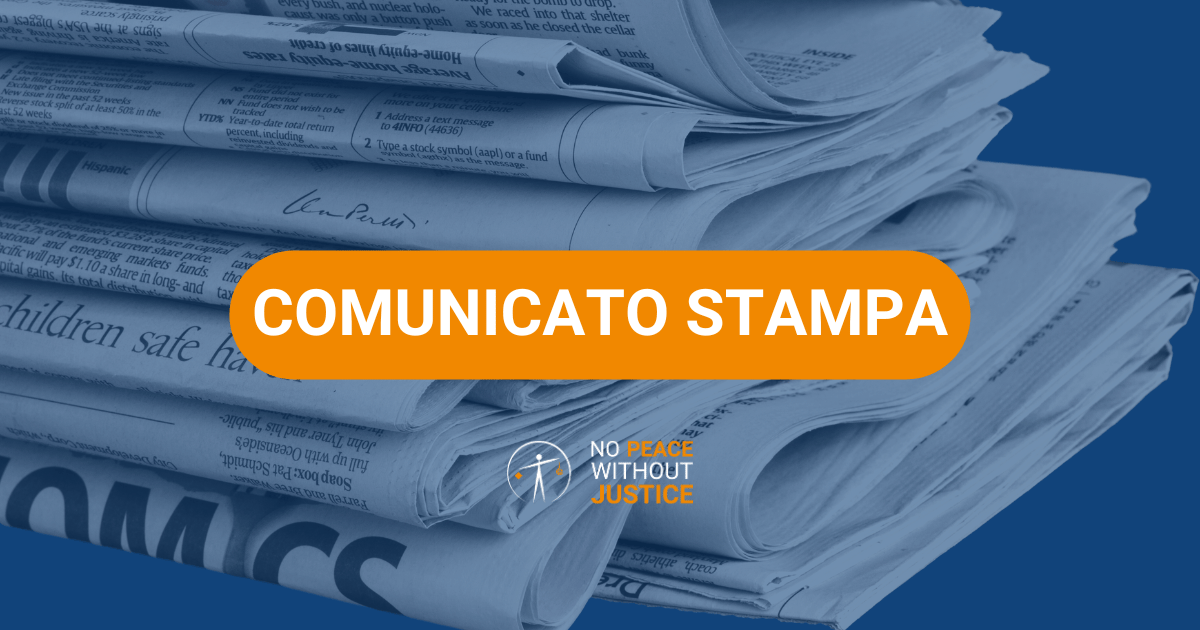Download the statement
Mr President, excellencies, distinguished delegates, ladies and gentlemen,
It is an honour for me to address this Assembly for the first time since becoming Secretary-General of No Peace Without Justice at the beginning of this year. I wish to assure members of this Assembly, and representatives of the International Criminal Court, that No Peace Without Justice remains committed to a strong international criminal justice system with the International Criminal Court at its heart and will continue to work towards improving that system, as we have right from the beginning of its journey.
Mr President, I would like to address, briefly, three issues that we consider of vital importance to achieving those improvements: prosecutorial policy; the Review Conference and in particular its stocktaking aspects; and the Court’s field presence.
First, on Prosecutorial Policy. No Peace Without Justice has consistently supported the approach of the Office of the Prosecutor in focusing their cases on those who bear the greatest responsibility for the crimes committed as a whole in any given situation, irrespective of the fighting faction to which they might belong. Impartiality does not mean equidistance between victims and perpetrators, it does not mean distributing blame equally between fighting factions, even when it might seem politically expedient. Impartiality means prosecuting those who bear the greatest responsibility for the overall commission of crimes under the jurisdiction of the Court, even if they happen to be preponderantly from one side of a conflict.
Second, on-field presence. During last year’s general debate, No Peace Without Justice called on States Parties to support the efforts of the Registrar to enhance the Court’s field presence, which is important for all of the Court’s functions, from outreach to investigations to trials. We appreciate that this is becoming an important policy issue and urge States Parties to continue to engage with the Court in discussions on the centrality of field offices in the implementation of the mandate of the Court and to support the Court in its ongoing efforts. We are releasing a policy paper on the issue of the Court’s field presence during this session of the Assembly of States Parties, which also details the experiences of other international courts and makes recommendations as to how the Court can maximise its field presence in the short-term at a cost-neutral expenditure and encourages a long-term strategic reconceptualisation of the ICC’s operations in its situation countries.
Even so, we recognise that the Court still needs cooperation from a variety of actors to fulfil its mandate of investigating and prosecuting those who bear the greatest responsibility for the most serious crimes of concern to the international community as a whole. To that end, we invite the Assembly to recognise multilateral cooperative efforts to assist the Court, and States, in those investigations, including in the draft resolution before the Assembly on cooperation. One such initiative is the Justice Rapid Response. We would like to take this opportunity to acknowledge the support shown for this initiative, particularly the willingness of many State Parties to make expert personnel available for rapid deployment as well as the practical support provided by the European Commission and the Governments of Canada and Finland, We would very much welcome deepened engagement from other States and from the International Criminal Court itself over the coming years.
Finally, Mr President, a few words on the Review Conference. Together with many of you we consider that the Review Conference will be an important opportunity to conduct a stock-taking of where we are, where we want to be, and how we can get there. We believe this is as important as the amendments process, as it will set the policy tone and direction for the Court and for your own work in the years to come. For No Peace Without Justice, one of the most important aspects of this element of the Review Conference is the impact of international criminal justice on societies and populations affected by the crimes under the Court’s jurisdiction. In order to understand fully that impact, and to bring those experiences as an integral part of your decision-making about the Court’s non‑judicial functions, we together with our Ugandan Partners the Human Rights Network – Uganda, HURINET, and the Ugandan Coalition for the ICC are organising a series of visits for ICC States Parties to speak directly with the people of Uganda in the months leading-up to the Review Conference. We invite all States Parties to participate, to hear the justice needs and aspirations directly from the people, and to bring those experiences to your very important discussions on stocktaking.
We are also concerned by the decision to decrease outreach activities in Uganda and to scale down the Ugandan field office. Despite the lapse of time since the issuance of the arrest warrants for senior leaders of the LRA, the need for outreach in Uganda has not decreased. On the contrary, in the absence of trials, the potential for misinformation is even higher and there is a real risk of creating the perception that the Court has abandoned the country because of the failure to execute arrest warrants. The role of outreach therefore continues to be crucial. The Assembly should also consider carefully the cost-efficiency of scaling down the Ugandan field office in the coming year, in view of the imminent Review Conference and the outstanding outreach opportunities it creates.
Thank you




